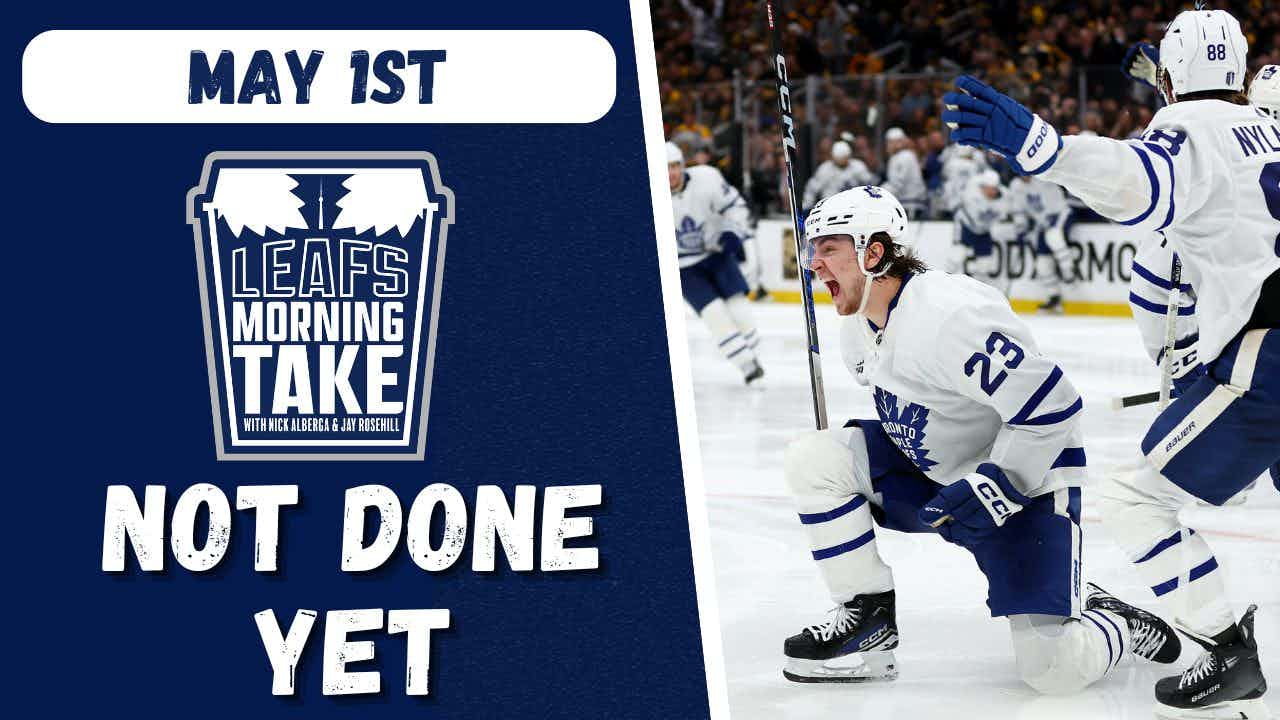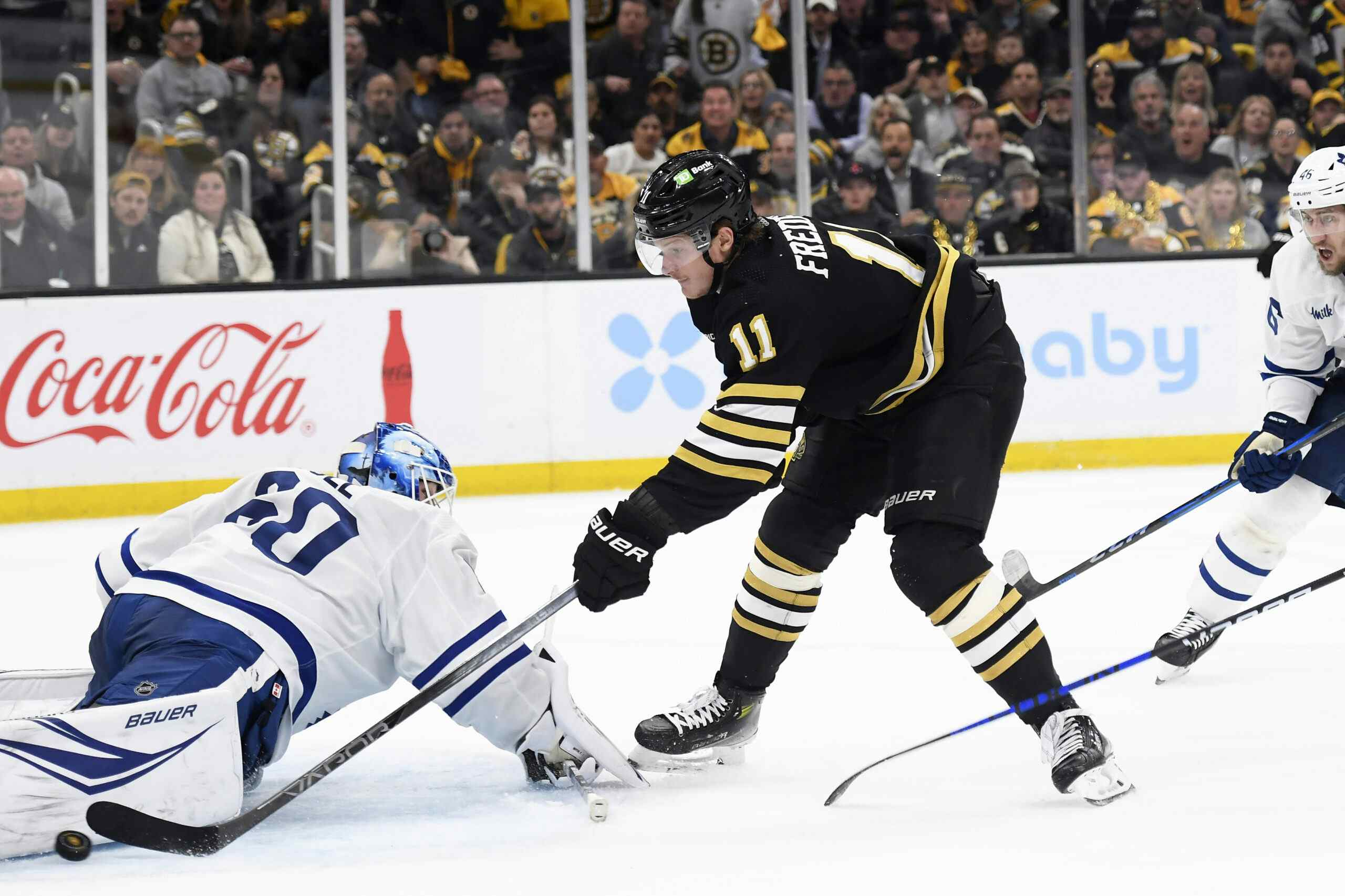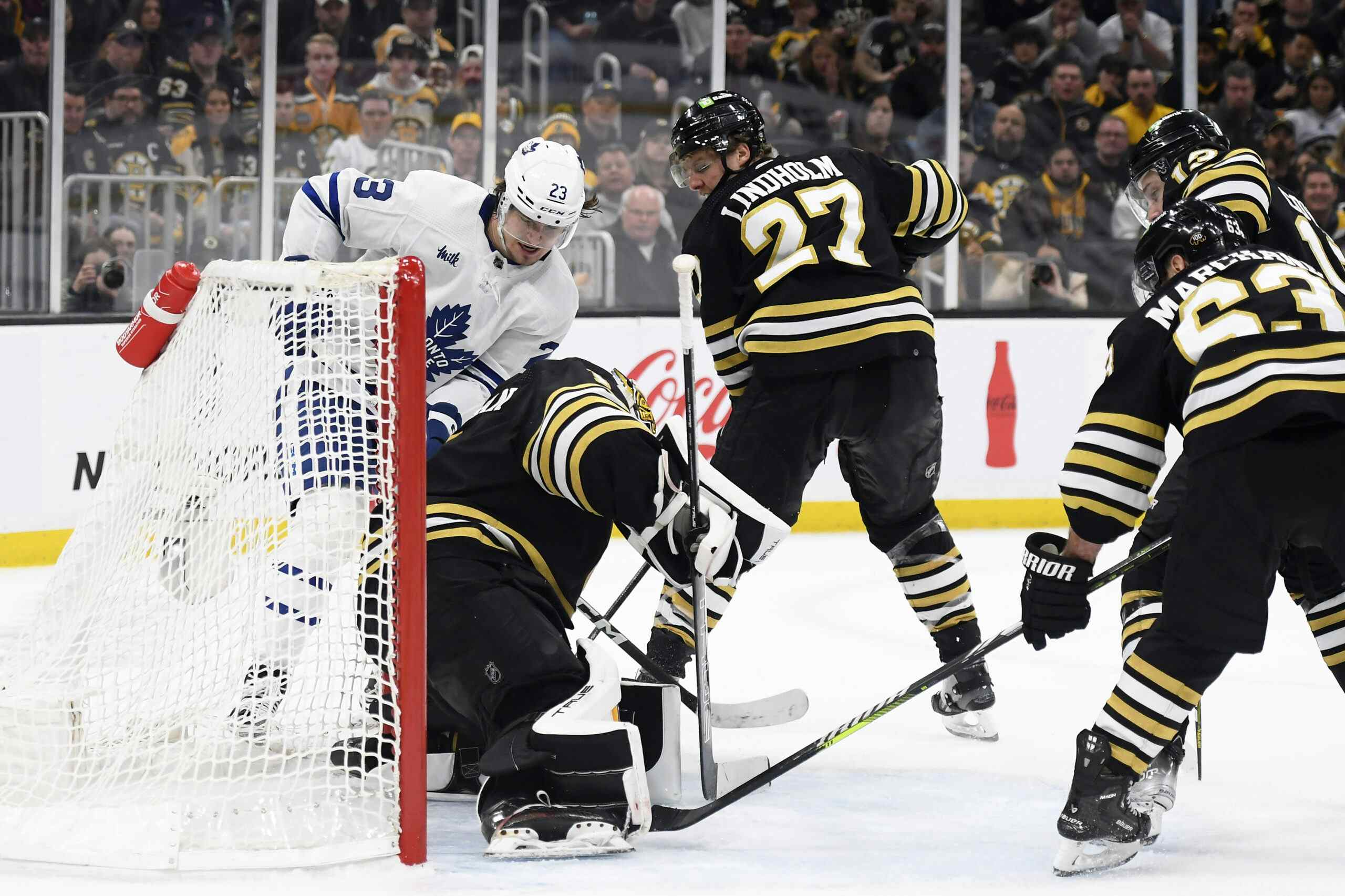The end of a Long Weekend at Bernies

Photo Credit: Charlies Leclaire/USA TODAY SPORTS
There was always something interesting about the Jonathan Bernier era in Toronto. It started off with a move that was simultaneously unnecessary yet reasonable at the time, and it ended with the same. Bernier probably could have stuck around for a little while longer, and might have even boosted his own trade value as a sheltered backup. But outside of the world of statistical probability, his time had likely come.
A quote from Tim Leiweke has stuck with me for a few years now. “I think, in this town, we’re afraid of the pressure. What we’re going to have to do here is find guys that thrive on that pressure. I know we [the Leafs] have that in our keeper [Bernier] and I hope we’ll see it and build it with everyone else on the team.”
It was a telling anchor statement of the era, as the Leafs embarked on a risky journey in hopes of building upon a polarizing season, where an entire city argued about whether the first playoff appearance the team had made in nearly a decade was the start of something big or the result of a lucky string of coin tosses.
The abrupt, ten minute bleed out of the operation left a group searching for answers to a question that perhaps shouldn’t have been asked. The sudden burst of energy in the fan base, combined with new heads at the various stages of the management pyramid, meant that doubling down on building on success, making it their own blend, and generally going for it was the best way to go for the individuals at play.
It was frustrating at the time, and the decisions made were definitely but given that the current situation might be better than what could’ve possibly come out of a different direction taken then, there’s a bit more understanding and empathy.
Back to the quote. Bernier gets a lot of that “understanding and empathy”, at least from me. The acquisition of a new goalie was never going to sit well with the masses; James Reimer was well on his way to becoming one of the most well-liked people to wear the blue and white sweater in his generation, and had just come off another year where he looked to be capable of being an NHL starter, as long as he didn’t play through injury. Bernier just happened to be the one who had to take the fall, fuelled by Leiweke’s aspiration of having “hockey mind” added to his resume, by winning in two cities through making one of his proteges into the hero of the sport’s promised land. He immediately threw a lot of pressure on him, saying that he was a guy who could handle it, and that’s why he was the right choice.
For a while, that seemed to be the case. The Leafs started his first year with the hot sticks, he was given starter minutes, and the fans ran with it. As they should have; players shouldn’t be held accountable for executive decisions, the team didn’t give up any overly significant assets for him, and if they were somehow able to turn Bernier and Reimer into a simultaneously consistent tandem, it was one that could stack up with any in the league.
We all know how the story went from there that year. The players who were running on luck saw it dry up. The personnel decisions up front ended, designed to bring experience and heart to a team that was thought to be lacking it, ended up being net negatives to performance. Bernier had a career year and while the injury bug once again hit Reimer, he largely held the fort. But when you combine the former factors with an outdated coaching system, the Leafs ended up getting outshot at a historical frequency; not even the greatest of goalies would have been able to save them.
The front office began to shift. Some new minds were brought in. Brendan Shanahan became the all-seeing eye of the operation while Leiweke started drafting his plan to knockoff Stubhub move on to a new business venture. While the Leafs began to transition themselves into a more sustainable long-term direction, Bernier actually kept stopping pucks, following up a 0.923 season with a big start to 2014/15 as well.
But as the start of a new calendar year hit, things began to fall off. Our very own Greg Brady wrote a polarizing piece yesterday about how “the Mandela incident” may have been a factor in the downward spiral. I think there’s something to the theory. Going back to the Leiweke line about Bernier being one who was capable of handling the pressure, I think there’s something to that.
Up until that point, Bernier hadn’t really had a ton of pressure placed on him in his career. In Los Angeles, he was always the protege with a long-term plan attached to him. He got to play the less-crucial games for a very good LA Kings team, and fans approached him with concern for the situation but cautious optimism for the player. Plus, he was the man that punched Ryan Miller in the face, which endeared him to much of the fanbase. But an extremely trivial (though still funny in a cringe-worthy way) off-ice incident, of all things, set off some public skepticism. He stayed hot for a few more weeks, but, perhaps once it became evident that Toronto never forgets anything, that played into his head a bit.
It also didn’t help that Randy Carlyle was fired around this time. Systems don’t seem like a thing that should mess with a goalie on the surface, but the impact can be very real. A difference in defensive coverage can mean different screens. Fewer shots can mean that your mind, adjusted to a heavy workload, starts to wander a bit. Even if Peter Horachek’s system was a little closer to what Bernier started his career with in Los Angeles, a sense a familiarity disappeared for someone who was confident in their routine.
There were a few months where things were shaky, but not quite representative of a pattern. He had his off nights, but calling the situation a crisis at that point would have been an overreaction. But the above goal on March 5th was the moment where things really went off the deep end. It was Tampa Bay’s second shot of the game, and it was followed by three long-distance goals in what became the first of seven consecutive 3+ goal against nights. Something was wrong. The fans and media started talking about the end of the road, and if trading him was the answer. The team explored the possibility in the shadows.
Bernier was finally under pressure to make the best of a bad situation, rather than having a full vote of confidence in a tough moment. That was the difference, and he seemed to never be able to cross that bridge. The team’s staff offered up some technique suggestions in hopes that fixing a perceived flaw or two would get him a couple more saves, which in turn would get his confidence back up. From my understanding, he remained firm in his belief that changing his game wasn’t necessary and that he could shake it off.
The summer didn’t help him much. Mike Babcock came to town, with a blank slate as far as giving the benefit of the doubt to any of his players. Lou Lamoriello followed, with a no-nonsense mindset and his own philosophies on how to create, foster, and harvest personal character. Bernier was simultaneously in a position where he could get his groove back but had nobody giving him a guarantee. He’d have to find his own answers. He’d also have to deal with another minor PR whiff in June when his wife accidentally fed the rumour mill through social media.
Bernier played sufficiently enough to get one more kick at the can at the start of the year pleasantly surprising people in his first four appearances. But with puck luck playing gainst him, he managed to lose three games where he allowed two or fewer goals. The defeatist seemed to kick in from there, as the long bombs, early game goals, and blowouts started to come back. Meanwhile, James Reimer, both healthy and armed with new techniques, started the year as one of the league’s top goaltenders. “I did that early,” Mike Babcock said of giving Bernier a chance to rebound. “Reimer decided he wanted the job, so he got the job.”
In a shocking move, Bernier was sent to the Marlies on a conditioning stint, with the hope that playing in a league that even his detractors thought he was better than would remind his psyche that he can still win games. He posted shutouts in his first three games, but with Leafs brass watching his final appearance, he gave up a goal on his first scoring chance against, a fourth goal with seconds remaining in regulation, and a fifth at the beginning of overtime.
While that last game may have caused a hiccup, the experience seemed to be a good one for him overall. After January 1st, Bernier was a 0.920 goaltender; a situation where he benefited from more chances to start, zero pressure to win, a James Reimer deadline trade, and injury-laden struggles for young Garret Sparks.

It’s pretty obvious that Bernier went through a rough calendar year, one where his mental fortitude was severely tested by minor but armour breaking slip ups off the ice, and a couple of worst case scenario performances at inopportune moments on it. The numbers seem to imply that Bernier is an at, or slightly above average goaltender. It’s hard to believe that a 28-year-old’s career should be written off based off a few months of struggle.
But in this time, we where Leiweke and his hockey staff below him went wrong with their assessment of pressure and character. Being on a winning team and talking without a ton of outward emotion doesn’t make you an ice-cold, high-pressure player. If you have any faith in an intangible like that, the best place to find it is when players deal with adversity. From an outsider’s perspective, what we saw in Bernier looks like a battle of self-esteem; a player who is invincible when he has unwavering support but hasn’t quite processed how to deal with the microscope in front of him.
That’s not to fault the guy. We often forget that we’re dealing with human beings here, not hockey playing robots. Most of us can relate to the idea of self-esteem impacting performance; to call that common would be an understatement. The pressure of being the guy who bails out the mistakes of the most analyzed team in their sports, especially when the going gets tough, would be insurmountable for just about anybody. It may have been for him too.
I’m very confident that Bernier will have a good year in Anaheim, and could still have a great career overall. He spent four months trending back in the right direction last season, and he’ll play in a passionate but lower-pressure market who expect him to do nothing more but put in his best effort as John Gibson’s backup. Plus, for all of Randy Carlyle’s faults, Bernier played his best hockey under him and might just be a guy who thrives on the high-volume system.
Ultimately, the Leafs didn’t get what they were expecting out of Bernier, but they still got a heck of a ride. They gave up few assets and got back one of the best single years for a Leafs goaltender ever, that just happened to come at the wrong time. They likely won’t get a lot in return by shipping him back out three years after the acquisition, but they get to continue to turn the page on a prior era while giving a loyal, if flawed soldier a second chance elsewhere. Hindsight on him will likely always be complicated, but if nothing else, he’s a worthy symbolism of an era shift in team history.
Recent articles from Jeff Veillette





